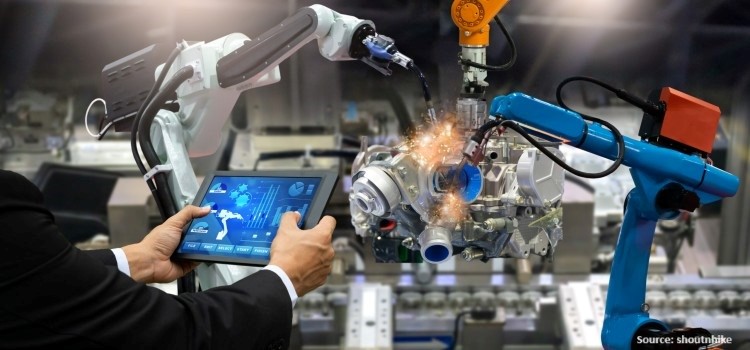
U.S. Distributed Control System (DCS) Market by Component (Hardware, Software, and Services) Application (Batch and Continuous Process), by Project Type, (New Construction, Replacement, and Upgrade/Expansion), by End User (Oil & Gas, Chemicals & Refining, Energy & Power, Pulp & Paper, Metals & Mining, Pharmaceutical & Biotech, Food & Beverages, Cement & Glass, Water & Wastewater, and Others) - Opportunity Analysis and Industry Forecast 2024–2030
Industry: Semiconductor & Electronics | Publish Date: 22-Mar-2024 | No of Pages: 155 | No. of Tables: 118 | No. of Figures: 63 | Format: PDF | Report Code : N/A
Market Definition
U.S. Distributed Control System (DCS) Market was valued at USD 7.12 billion in 2023, and is predicted to reach USD 10.18 billion by 2030, with a CAGR of 5.2% from 2024 to 2030. A Distributed Control System (DCS) is a computer-based control system widely employed to oversee and automate industrial processes. It comprises a network of controllers distributed throughout industrial facilities, facilitating communication and coordination in the automation of various processes. DCS systems find applications across diverse industries, including but not limited to the chemical, petrochemical, pharmaceutical, food and beverage, and power generation sectors.
These systems are particularly valuable in large-scale industrial processes demanding a high level of automation and control, such as those in oil refineries, chemical plants, and power stations. They serve to regulate and oversee a range of operations, including drilling, refining, blending, manufacturing, filtration, and disinfection, ensuring processes run with precision, efficiency, and safety.
The utilization of DCS systems offers numerous advantages, including enhanced process control, heightened efficiency, and improved safety, along with reduced downtime. DCS achieves this by distributing control functions across multiple controllers, providing redundancy and fault tolerance. This means that even in the event of a controller failure, industrial processes can continue to operate without disruptions.
DCS systems have evolved into indispensable components of modern industrial automation setups, substantially enhancing the reliability and efficiency of industrial processes. Furthermore, they contribute to safety by enabling real-time control and process monitoring. They are capable of detecting potential safety hazards and promptly alerting operators to take corrective measures.
DCS systems are also instrumental in predictive maintenance, facilitating proactive maintenance practices that minimize downtime. They collect and analyze data from sensors, offering valuable insights for continuous process improvement.
DCS Revolutionizes Pharmaceutical Manufacturing for Enhanced Efficiency and Safety
The country has a well-developed pharmaceutical industry that produces a wide range of drugs and medical products. Some of the world's largest pharmaceutical companies, such as Pfizer, Merck, and Johnson & Johnson, are headquartered in the U.S. DCS is used in pharmaceutical manufacturing facilities to monitor and control various processes, such as chemical reactions, mixing, filtration, and purification. DCS systems can be used to automate and optimize these processes to improve efficiency, quality, and safety. This, in turn, propels the adoption and expansion of DCS solutions in the U.S.'s pharmaceutical industry, contributing to the overall market growth.
Global Industry Leaders' Strategies Fuel Growth of the Distributed Control System Market
The presence of major market players such as ABB, Honeywell International, Inc., Rockwell Automation Inc., and Emerson Electric Co., which are implementing market strategies to maintain their dominance globally, also contribute toward the market expansion.
For instance, in December 2022, Emerson expanded its partnership with ZEDEDA, a company that offers an edge computing platform for deployment, management, and security of applications and services on distributed edge devices to modernize the industrial edge. As part of the collaboration, ZEDEDA's edge management and orchestration solution will be integrated into Emerson's DeltaV automation system, enabling Emerson’s customers to extend DeltaV to the distributed edge.
In addition, in June 2021, ABB launched its Ability System 800xA 6.1.1, which strengthened its dominance in the DCS industry and represents an evolution for automated control and plant operations of the future. This eliminates the need for control application software or process controller hardware, allowing users to configure and test I/O in the field with a single laptop.
The Risk Associated with Cybercrimes Hampers the Market Growth in U.S.
DCS systems are inclined to cyberattacks as they are networked and computerized. Cybercriminals can gain unauthorized access to DCS systems, compromise sensitive data, and disrupt critical infrastructure, causing significant financial losses and reputational damage. The consequences of a successful cyber-attack on a DCS system can be severe, especially in industries such as power generation, oil & gas, and chemical processing, where disruptions can have significant environmental and public safety implications.
Modular and Flexible DCS Systems: Unlocking Opportunities for Enhanced Automation
The introduction of modular and flexible DCS systems can create ample growth opportunities for DCS market. Traditionally, DCS systems have been highly centralized and monolithic, with large-scale installations that are expensive and complex to install and maintain.
However, introduction of modular and flexible DCS systems is changing this paradigm. Modular systems are designed to be more flexible and scalable, with a modular architecture that allows easy integration with other systems and components. This makes it easier to customize DCS systems to meet specific needs of individual organizations, without the need for costly and time-consuming customization.
These systems can help to improve production efficiency, reduce costs, and enhance product quality, which is expected to propel demand for DCS systems across a range of industries, including manufacturing, energy, and process industries.
ABB’s modular-enabled process automation solution that combines an orchestration layer is one of the major examples of modular and flexible DCS system. It also consists of a module layer integrated with module type packages (MTPs) technology for cost-effective modularization. This solution is designed to provide end-users such as mining, pharmaceuticals, and biotech with an automation solution that can fit their applications better than Programmable Logic Controllers (PLCs) and costs less than a traditional DCS.
Competitive Landscape
The U.S. distributed control system (DCS) industry includes several market players such as Yokogawa Electric Corporation, Hitachi Ltd., Omron Corporation, Emerson Electric Co., Mitsubishi Electric Corporation, ABB Ltd., Rockwell Automation Inc., Honeywell International Inc., Valmet OYJ, Toshiba Corporation, Schneider Electric SE, General Electrics, Ingeteam Corporation S.A, Azbil Corporation, and Siemens AG.
U.S. Distributed Control System (DCS) Market Key Segments
By Component
-
Hardware
-
Controller
-
I/O
-
Workstation
-
Networking Hardware
-
-
Software
-
Service
-
Integration and Implementation
-
Managed Services
-
Support and Consultation
-
By Application
-
Batch
-
Continuous Process
By Project Type
-
New Construction
-
Replacement
-
Upgrade and Expansion
By End User Industry
-
Oil & Gas
-
Chemicals & Refining
-
Energy & Power
-
Pulp & Paper
-
Metals & Mining
-
Pharmaceutical & Biotech
-
Food & Beverages
-
Cement & Glass
-
Water & Wastewater
-
Others
REPORT SCOPE AND SEGMENTATION:
|
Parameters |
Details |
|
Market Size in 2023 |
USD 7.12 Billion |
|
Revenue Forecast in 2030 |
USD 10.18 Billion |
|
Growth Rate |
CAGR of 5.2% from 2024 to 2030 |
|
Analysis Period |
2023–2030 |
|
Base Year Considered |
2023 |
|
Forecast Period |
2024–2030 |
|
Market Size Estimation |
Billion (USD) |
|
Growth Factors |
The presence of major pharmaceutical companies. The emergence of global key players. |
|
Companies Profiled |
15 |
|
Market Share |
Available for 10 companies |
|
Customization Scope |
Free customization (equivalent up to 80 working hours of analysts) after purchase. Addition or alteration to country, regional, and segment scope. |
|
Pricing and Purchase Options |
Avail customized purchase options to meet your exact research needs. |
KEY PLAYERS
-
Yokogawa Electric Corporation
-
Hitachi Ltd.
-
Omron Corporation
-
Emerson Electric Co.
-
Mitsubishi Electric Corporation
-
ABB Ltd.
-
Rockwell Automation Inc.
-
Honeywell International Inc.
-
Valmet OYJ
-
Toshiba Corporation
-
Schneider Electric SE
-
General Electrics
-
Ingeteam Corporation S.A
-
Azbil Corporation
-
Siemens AG




 Speak to Our Analyst
Speak to Our Analyst

































